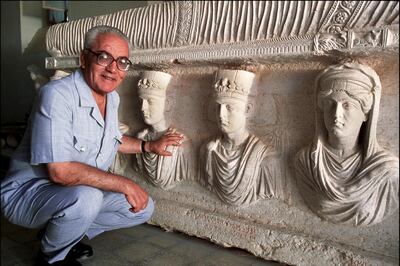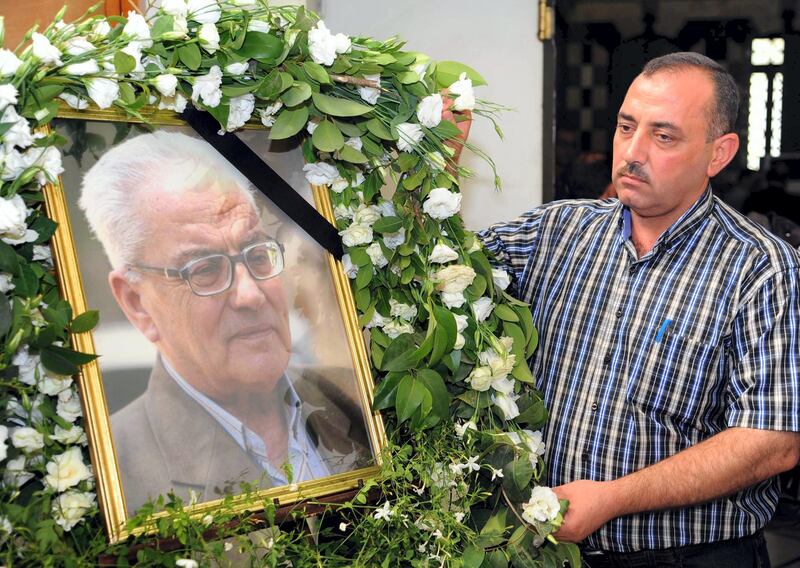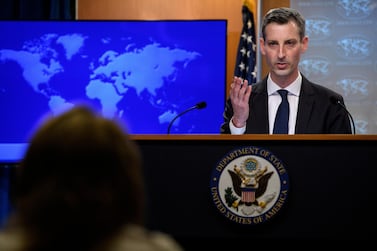The family of a famed Syrian archaeologist murdered by ISIS has vowed to continue the search for his body after remains discovered in February have been ruled out as his.
DNA testing determined that a body found near the ancient city of Palmyra earlier this year was not that of Khaled Al Asaad, who was executed by ISIS militants in 2015 as he tried to protect the Unesco World Heritage site.
“The remains are not those of my father, martyr of the world Khaled Al Asaad,” his son Tareq told The National.
Mr Al Asaad said that, despite the anguish, he and his family were determined to continue the search for their father’s remains.
“We will not stop looking for my father’s real body, we will find it, and we will put it to rest in a place suitable for a martyr of the world,’ he said.
The 82-year-old was beheaded by the extremists in 2015 after he refused to lead the group to artefacts hidden to keep them safe amid Syria’s civil war. He had spent the preceding months and years hiding many of Palmyra’s great treasures from the civil war’s belligerents.
When ISIS captured Palmyra, the ancient city the archaeologist had devoted his life to conserving, he was arrested and tortured for a month in the basement of a hotel, as the militants tried to find out the locations of the hidden treasures.
Antiquities experts say the extremist group made millions of dollars by trafficking artefacts looted from across Syria, Iraq, and Libya.
As a former Head of Antiquities at the site, until his retirement in 2003, Al Asaad had unparalleled knowledge of the site's most valuable artefacts.

His heroic refusal to give up the hidden treasures drew widespread acclaim from within Syria and beyond its borders.
For almost six years, the authorities and his family have been unable to find his remains.
Hopes were raised in February when several dismembered bodies were found near Palmyra.
But DNA samples provided by his son and brother Mohammed have now determined that the remains found do not belong to the fallen archaeologist.
The family were informed of the results by the Ministry of Interior on Monday.
Speaking when the remains were discovered, Mr Al Asaad said the family wanted his father to be buried in the grounds of the Palmyra National Museum.
“There is no place more sacred to my late father than this place. This is our wish as his family,” he told The National at the time.








